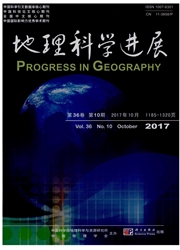

 中文摘要:
中文摘要:
对西方地学计算的起源、概念、知识体系以及存在争议的问题进行了概括地介绍和评述。地理计算的发展动因在于探索空间复杂性的需要,发展源流则在于计算科学,技术主线可以归结为:计算机科学→计算科学→计算地理学→地理计算科学。地理计算与地理信息系统(GIS)具有密切关系,需要运用定量地理学的全套工具.横跨自然、人文两大领域,可望成为一个全新的知识领域,甚至有可能发展出一种新的研究范式。地理计算科学在西方发展迅速,但也存在一些令人不安的问题,其中之一便是缺乏知识建构的核心。由于地理计算具有超越地理学的意向和趋势,本文建议以计算地理学为主体之一,以“利用模型寻求理解”为原则,建立一个相对收敛的知识体系。
 英文摘要:
英文摘要:
This paper is devoted to introducing the concept and ideas of GeoComputation (GC) to Chinese geographers. GC is regarded as the application of computationally intensive approaches based on high performance computing to solving geographical problems and to explaining geographical phenomena. One of the origins of GC is linked to computational science with a principle of the use of models to gain understanding. GC includes all the tools of quantitative geography, but it is not the development of quantitative geography. GC was covered in some GIS books, but it is not another name for GIS. In addition to the greater computational efficiency and fuzziness provided by computational intelligence technologies, GC can improve the quality of study results by using computationally intensive methods to reduce the number of assumptions and eliminate the irrelevant simplifications imposed by computational constrains. A problem is that we don't know what 'core GeoComputation' is. In order to make the diverse research efforts on GC convergent, we should have computational geography become the principal part of GC, which seems to exceed the limit of geography.
 同期刊论文项目
同期刊论文项目
 同项目期刊论文
同项目期刊论文
 Spatiotemporal evolution of urban form and land use structure in Hangzhou, China : evidence from fra
Spatiotemporal evolution of urban form and land use structure in Hangzhou, China : evidence from fra An analytical process of the spatio-temporal evolution of urban systems based on allometric and frac
An analytical process of the spatio-temporal evolution of urban systems based on allometric and frac Analogies between urban hierarchies and river networks: Fractals, symmetry, and self-organized criti
Analogies between urban hierarchies and river networks: Fractals, symmetry, and self-organized criti Urban gravity model based on cross-correlation function and Fourier analyses of spatio-temporal proc
Urban gravity model based on cross-correlation function and Fourier analyses of spatio-temporal proc 期刊信息
期刊信息
